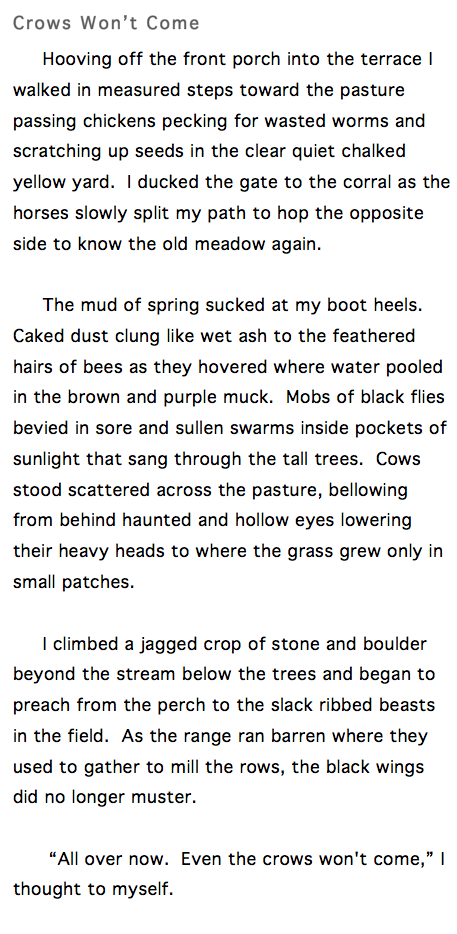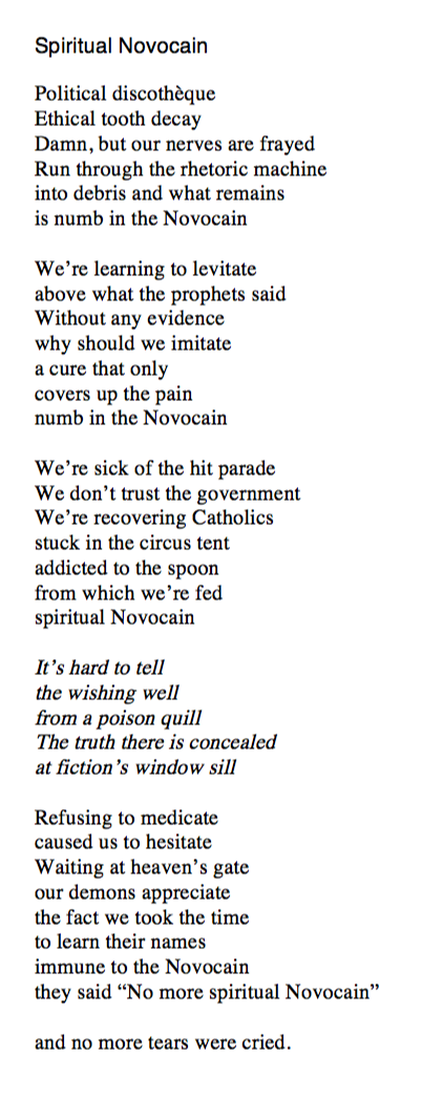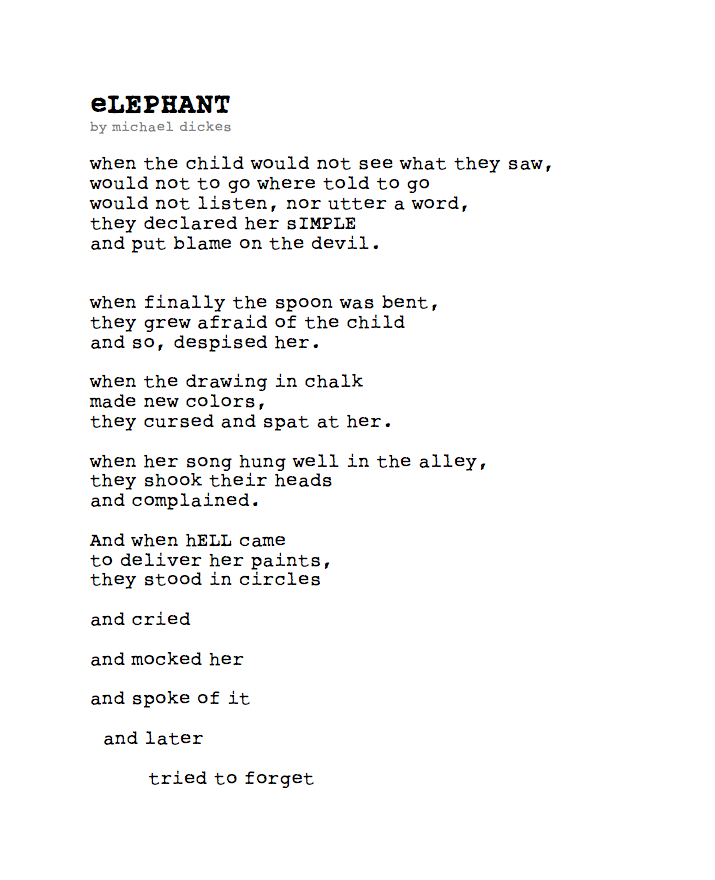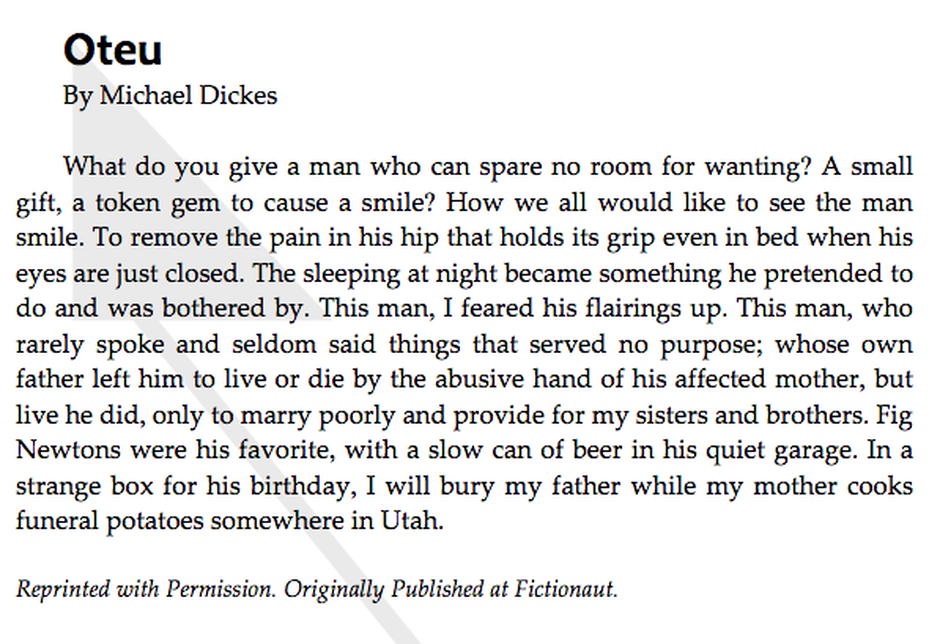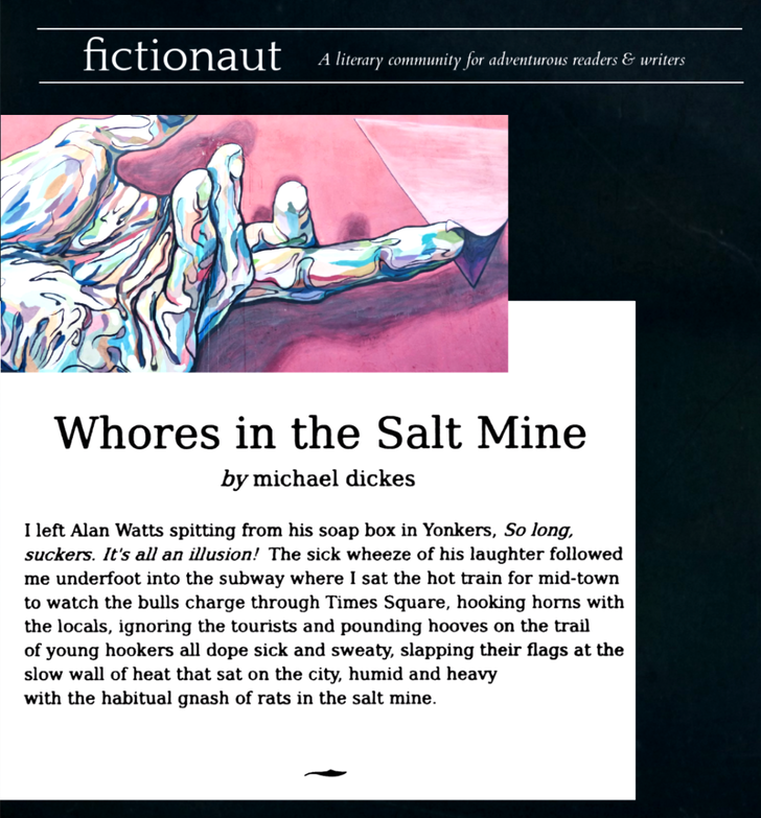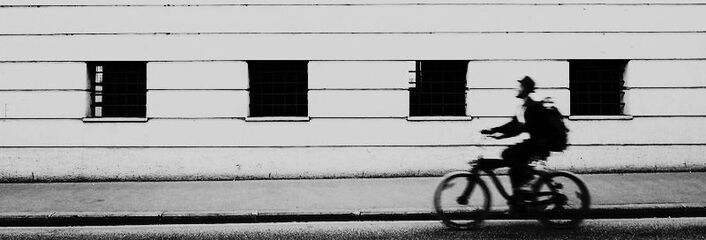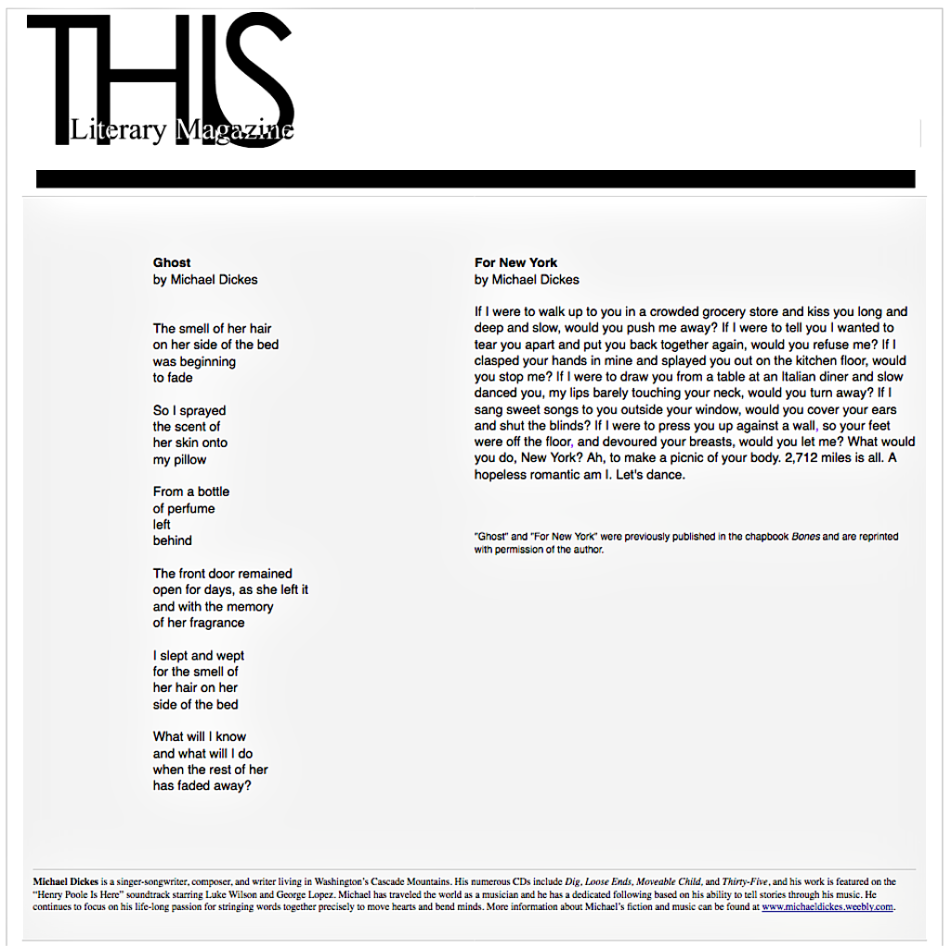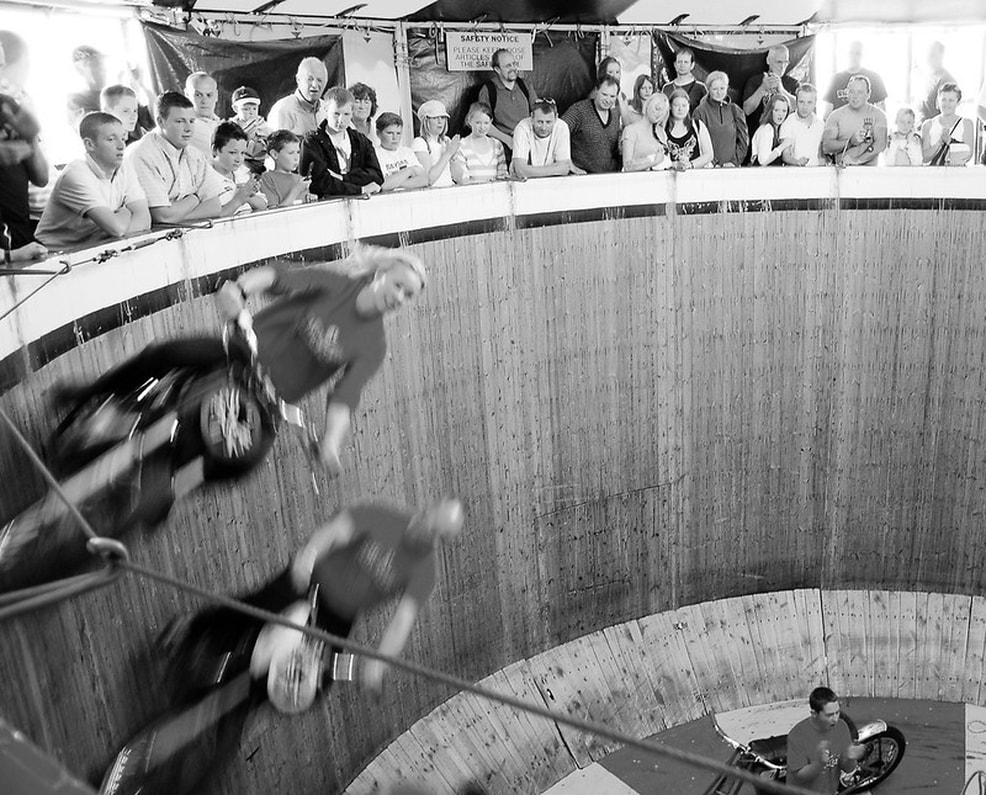|
|
Bedford Stuyvesant by michael dickes There is a marble arch that stands stained and erect at the top of the steps that lead into the entrance of the brownstone we lived in. She had grown up in Bedford Stuyvesant and therefore had begged that we move there when we returned from our year in Spain. I agreed, only in the hopes of s’eancing with the ghosts of Hemmingway, Cummings, Kerouac and Ginsberg in the Village. Had I known what was to transpire, I would have never left my drunken perch on the window ledge of our tiny villa in Cadaqués. In the weeks that passed, life blew in blissful breathes of ease, comfort and peace. I had never been happier. Enough money remained from my publishing advance so that we were free to explore the city again when I wasn’t writing. Slow kisses in the markets, long walks in Prospect Park, and quick smiles in comfortable silence while dangling our thoughts from the bridge over the stream there. She was an amazing cook. When we weren’t feasting on something she had made, her hair hung down as I would make a picnic of her body. She was delicious. Even now, to think of her makes my mouth water and my heart long for those days. As the money ran low and fall hung in the trees, she grew quiet, impatient with me, critical of my writing, my hair, how poorly I made her tea. It had been so perfect that I ignored the lines she had begun to etch into the wall. In the absence of words and emotion, her departure was so curt and cold that all of the oxygen in the room escaped ahead of her as she closed the door. She had turned off the heat and shut the lights before I returned with the wine. The lights of Brooklyn at night poured in through the front windows and crashed over my shoulders as I stood staring at the back of the door through wide eyes and the paint of a statue. I walked out into the middle of the street, turning slowly around and around in confusion as if I were lost on the moon. Cars moved slowly around me. I saw people in pairs, side by side in their seats. Traces of light lit in the rain on the roadway. Voices whispered in tongues. Spanish wine bled through broken glass. The arms of the marble arch cut long at its sides while it wept over me. I stepped back onto the sidewalk and fell to the steps with my hand on my heart. AUDIO STORIES
|
BEEKO
by michael dickes The elevator doors drew open and Beeko came crashing in to hide behind me. Hit the button, hit the button, he said, latching his tiny fingers onto my back pockets, poking his head around my legs from side to side. Well, good morning, Beeko, I said. Hi Jon, the boy whispered. I got Carlos good with my squirt gun and now I’m turning invisible. Another super secret spy mission accomplished, I take it. Almost, he said, Hurry, Jon. Hit the button, hit the button! Beeko’s covert activity was swiftly tailed by the unimpressive bellow of our doorman, Carlos, whose low pouch and waddle came headfirst and rattled, glasses askew, and water dripping from his grubby mustache. Carlos shook his finger and fumed in Spanish, Ay por Dios, Beeko, te voy a estrangular, and all to the curt close of the elevator doors. Beeko giggled as we began to rise toward the 13th floor where he lived with his mother. Arms raised in victory, Beeko soldiered the perimeter of the small space, coming about to face me, his slim frame just shy of three feet, the most beautiful little boy I had ever known said, Agent Beeko Wesley Powell, reporting for duty, sir. Carlos was often the target of Beeko’s mischievous endeavors, at which the boy had been very successful, finding bliss in whatever turmoil could be caused in the lobby. Beeko did not ever play outside. Beeko was not allowed to go outside. His mother maintained a safe environment in their apartment, clean as any hospital, if not too sterile for the imagination of a six-year-old boy. “I let him ride the elevators to keep him from climbing the walls and out a window,” she had once told me. Beeko was born with a rare blood disorder that weakened his immune system. His mother was obsessed with protecting him from any potential source of infection that could easily be fatal. At ease, Agent Powell, I said. One of these days, old Carlos is going to catch up to you and then what will you do? Stomp on his toes and punch his balls, Beeko said, laughing and proceeding to act out the scenario. The smile slowly loosened and faded until the boy’s face fell empty and quiet. He clasped his hands together at the back of his neck and shuffled his feet. Thoughts were forming at the rims of his eyes. He looked at me directly and stated, The catbirds have all flown away. Surprised by the sedate manor in which he spoke, I asked, What do you mean? The birds, Jon. Every morning I come down to play with Carlos and I always go to the front windows first to see the birds, but today they weren’t there. Maybe they were sleeping, I said. Maybe, but I don’t think so. Carlos says that catbirds always wake up early. Oh, so you have actually had a calm conversation with the enemy? Jon, it’s only pretend, he said with a grin, a slight tilt to his head. But, the birds are real, Jon. The birds are real. I knelt down on one knee and put my hand to his cheek, I know, Beeko, I know. The birds will come back, I promise. They love you, like we all love you. The elevator doors opened and Beeko ran down the hall yelling, Bye Jon. See ya later. Look out for Carlos! I did not see Beeko the following day or the day after. In the lobby, I asked Carlos about the boy, at which he just shrugged and grumbled something in Spanish. I was leaving town on business and told the porter to let Beeko know that if I happen to see the catbirds, I will bring them all back home. Upon my return a week later, I paid the cab fare and followed the sidewalk. I saw how the buildings stood shoulder to shoulder, like orphans made to stand along a parade route long after its passing, the cold, lifeless faces, anxious to go kicking down the side streets of Manhattan, eager to break free from each other’s side. As I walked through the front doors of our building, the lobby was still and soundless. I collected my mail from the desk clerk and asked about Beeko. There are peculiar environs where a mere question can somehow alter the substance of time. As if just by the asking, our cells divide, all matter blurs, reality swivels and we are pulled out of our bodies to hover above as the world continues to spin in strange and slow motion. I watched as the desk clerk looked down at the ground and proceeded to tell me that Beeko had passed in his sleep. The man in my body did not move. The desk clerk went to scatters. The room started turning. Carlos stood by the front doors, crying, speaking in Spanish, and looking for birds. Previously published in Medium Magazine Draw Water There is no good. There is no bad. There are only observations. I am witness to them all. Knowing when to stop has never been a post I could ever get a rope around. It is my nature to push head-bent and full-boar into the field of whatever my thoughts get a fix on. This often found me face down in the ditch for failing to navigate the curve or for failure to observe the curve. Always told that I had gone too far, too fast, I was hauled out of the ditch and parked at a safe location closer to home to heal my wounds. Before long, I’d be back at it, pounding, again and again, crawling behind the wheel, each journey drawing me farther and faster in search of new roads, ignoring the curves for distant ditches, hitting deeper and harder - Hurt like hell, every one of them. I get out of bed slower these days. When I do sleep, it is not for very long. While I may travel at a more precise pace and I don’t cover the miles that I used to, I continue to go farther into the surroundings of the here and now by the simple and mindful act of doing the moment, one after another. I am humbled by, and remain grateful for scars. Sometimes it takes a ditch to show you the road. I will never be able to get my arms around what or where ever too far is. I have, however, settled into the skin of what I know to be true: There are no mistakes. There are no limits. There is no such thing as impossible; there is always more beneath the surface of what meets the eye. There is no stopping, no starting over. There is no yesterday and no tomorrow. There is only the present moment, just doing and not doing, being and not being. The infinite is attainable. I need not travel by road. In simply sitting quietly observing, I remain available to the universe, to do the moment, to carry firewood, and to draw water. © 2012 Public Telephones
by michael dickes A hard-hearted hag on the M-15 up to Harlem leveled her best to bust my face with a metal thermos, but instead brought it down with an odd pop on the shoulder of the man sitting next to me, sending him into a fit of swear words scratched out and stuttered and I felt all punched in the heart, not because he took a blow meant for me, but because it’s god damned beat-down-and-bent-over-sad to hear someone whimper and stutter at the same time, no less to take in the sound of a grown man screeching and you just can't help feeling that now you’ve heard it all and from that point on, there is no doubt bearing in mind that everything, and I fucking mean everything in the world has gone all run-into-the-mountains-and-never-come-back wrong, fuck-all, wrong. What made the situation even worse, setting aside any action involving blood loss or drowning puppies, was that the hard-hearted old hag was in sore need of a shower and besides didn’t stop, but kept up and drew her metal thermos back for another go at my face and by then the bus driver was on the mouthpiece either announcing the next stop or screaming ‘knock that shit off’ and anyways you can never understand what they say on public transit intercoms, but the bus was pulled over all the same and the doors were flung open and I got the hot holy hell off of ther and trucked it on down 82nd street fast like and all just because I said, “Hey lady, shut up with the cell phone.” (c) 2014 |
